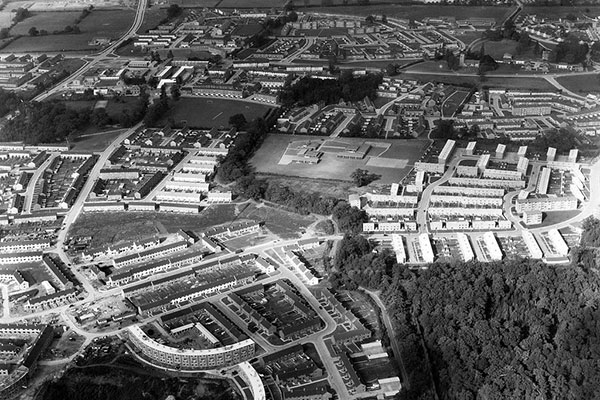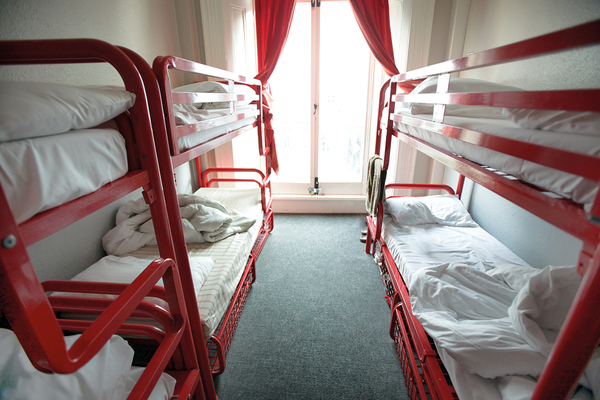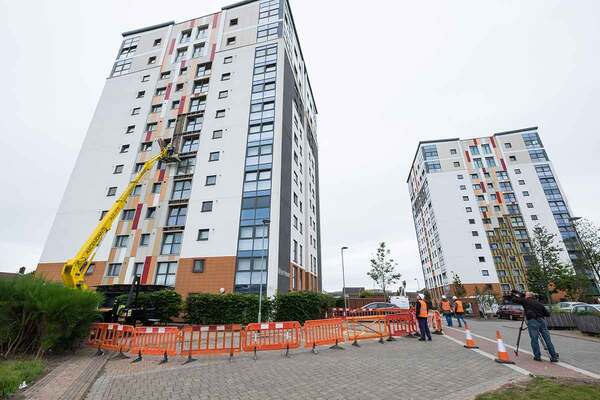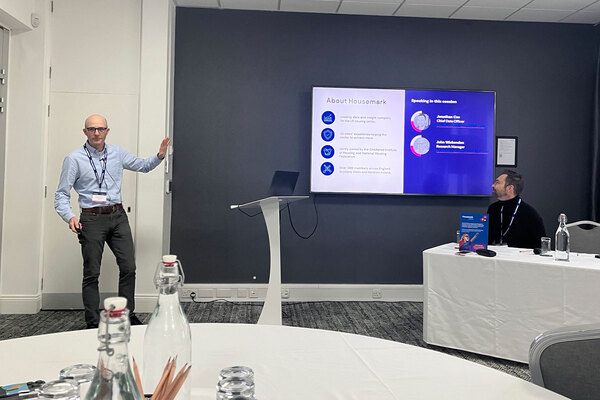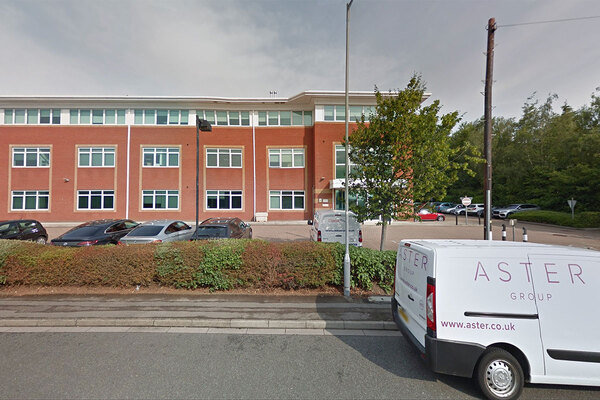You are viewing 1 of your 1 free articles
 Jules Birch
Jules BirchWe are warehousing poverty for profit on the edges of cities
Jules Birch assesses last night’s Panorama documentary on temporary accommodation and permitted development rights
Monday night’s Panorama provided a shocking window to the world of temporary accommodation and permitted development – but it also made me think back to an influential thinktank report from a decade ago.
The programme centred on Templefields House, a converted office block in Harlow run by property company Caridon. It provides temporary accommodation for local authorities across the South East but, according to the programme, it also has a contract with an offender rehousing charity.
There is no public transport and it’s 40 minutes’ walk from the town centre. And according to residents, the building is rife with crime, anti-social behaviour and drugs – and the police have been called out 600 times in three years.
In 2013, a change in planning laws meant companies could convert old office blocks into homes without planning permission.
— Panorama 🌐 (@BBCPanorama)
But what is is like to live in a converted office block? @CallumTulley met Nic, who has being living in temporary accommodation for three years. pic.twitter.com/8CvInTImRc>In 2013, a change in planning laws meant companies could convert old office blocks into homes without planning permission.
— Panorama \uD83C\uDF10 (@BBCPanorama) February 3, 2020
But what is is like to live in a converted office block? @CallumTulley met Nic, who has being living in temporary accommodation for three years. pic.twitter.com/8CvInTImRc
The building, the company and another converted block it runs in Harlow, called Terminus House, have featured in several previous media investigations of temporary accommodation and permitted development. See here, here and here for more details.
What was new in last night’s Panorama was the level of detail from residents and revelations from an undercover reporter.
Nick and his wife, who is on dialysis while waiting for a kidney transplant, have spent three years in temporary accommodation living in one room.
Matt and Tanya and their young daughter were placed at Templefields by Harlow Council after they lost their home but called it “a living hell” where no support was offered to tenants.
Kasey lived there with her three-year-old daughter for eight months, complained about drugs and fights and says she saw crack being cooked in one of the flats.
A survivor of domestic violence placed there found herself living in fear in a building surrounded by domestic violence.
The reporter was offered a stab vest on his first shift working as a security guard and was told to “wear them, just for now, till you build up a rapport with people”.
But at the end of the programme Nick poses the question of who would be providing the accommodation if Caridon was not there.
“So they’re your saviour?” asks reporter Callum Tulley.
“Yes, not a very palatable one, not a very nice one, but, yes, there was no one else around,” Nick says.
“They’re not doing this out of the kindness of their hearts. They saw a gap and they took it. Caridon is doing their job, they’re making a shelter for people. The council is leasing it out and saying we’ve got available places to put people if we need to.
“Everyone is doing their job but no one is looking at the big picture. Every little part of the system is optimised, except the entering experience isn’t. The entering experience is shit and it traps people here.”
A statement from Caridon in response to the programme argues that all its properties are “built and managed to the highest standards” and that “we break the mould in social housing and the stigma given to social tenants”.
Harlow was of course (like Peterborough) a post-war new town built to solve London’s housing shortage that now finds itself at the centre of a new housing crisis.
The council says it plans to remove all its residents within two years but it takes time to deliver alternative temporary accommodation.
Wider investigation by Shelter shows that almost 90 per cent of the £1.1bn spent by councils on temporary accommodation went to private landlords and letting agents – and that Caridon is by no means the biggest recipient.
But Nick’s grim summary of how the housing system functions in 2020 also made me think of something else.
Buildings like Templefields House are regularly referred to in media coverage as “human warehouses” but it only occurred to me last night where I had heard that before.
“Harlow was of course a post-war new town built to solve London’s housing shortage that now finds itself at the centre of a new housing crisis”
In 2009, a thinktank report was published that had a big influence on the housing policy of David Cameron’s Conservatives.
Principles for Social Housing Reform argued for an agenda including a move to near-market rents for all but the most vulnerable, a right for tenants to part-buy their home, an end to security of tenure, and open market sales of vacant properties.
This was justified by the argument that: “There is real concern that the current social housing system is failing the very people it was designed to help. Social housing was meant to help lift people out of the slums. Instead many social housing estates have become the very ghettos of multiple social deprivation that they were supposed to replace.”
Council estates had, said the report, become “barracks for the poor” and “the current social housing is warehousing poverty in the core of our great cities”.
A decade on, with investment cut and switched from social to ‘affordable’ and with temporary accommodation budgets stretched to the limit, the housing system is indeed warehousing poverty.
Except that it is happening in office blocks, business parks and industrial estates on the peripheries of our cities and run for private profit.
Jules Birch, award-winning blogger
Sign up for our asset management newsletter
Already have an account? Click here to manage your newsletters
Inside Housing Development Summit 2020
Inside Housing is pleased to join forces with Homes England and the LGA to introduce the Inside Housing Development Summit.
Taking place on 27-28 April 2020, the summit will gather together local authorities, housing associations, developers, fund managers and advisors for a Chatham House style event focussed on making new connections and exploring new delivery models.
The summit will take place over 28 hours, starting with an afternoon plenary on 27 April, an exclusive development site study tour to Northstowe, England's largest new town since Milton Keynes, followed by a business dinner.
The second day will provide opportunities to network with a range of senior Homes England and LGA staff including Nick Walkley, chief executive of Homes England and Mark Lloyd, chief executive of LGA.
You’ll also meet with leaders from across the development ecosystem and take part in group discussions to help you connect and explore new opportunities. All accommodation and meals will be provided within the fee.
Places for each stakeholder group are limited to ensure a balanced mix of participants and to make sure you leave with the relationships and leads you need.
Click here to book your place or for more information
